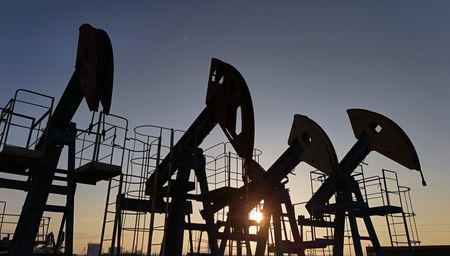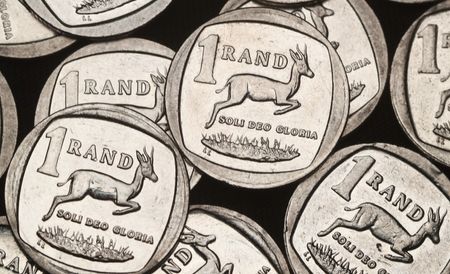By Arathy Somasekhar
HOUSTON (Reuters) -Oil prices settled 1% lower on Tuesday as investors worried about a supply glut after Iranian and U.S. delegations made progress in their talks and on expectations that OPEC+ will decide to increase output at a meeting this week.
Brent crude futures closed down 65 cents, or 1%, at $64.09 a barrel, while U.S. West Texas Intermediate crude fell 64 cents, or around 1.04%, to $60.89 a barrel.
The Organization of the Petroleum Exporting Countries and its allies, known as OPEC+, is not expected to change policy at a meeting on Wednesday.
However, another meeting on Saturday is likely to agree to a further accelerated oil output hike for July, three delegates from the group told Reuters.
Meanwhile, Iranian and U.S. delegations wrapped up a fifth round of talks in Rome last week. While signs of limited progress emerged, there were many points of disagreement that were hard to breach, notably the issue of Iran’s uranium enrichment.
“OPEC+ also meets next week where they will likely agree on further output increases, which, if it occurs, will be a major near-term headwind for crude, especially if Iran adds barrels in the possible (U.S.) deal,” said Dennis Kissler, senior vice president of trading at BOK Financial.
If nuclear talks between the U.S. and Iran fail, it could mean continued sanctions on Iran, which would limit Iranian oil supply, while any resolution could add Iranian supply to the market.
Also on the supply side, U.S. crude oil stockpiles likely rose by about 500,000 barrels last week, a preliminary Reuters poll found on Tuesday.
Supporting prices, U.S. President Donald Trump’s decision to extend trade talks with the European Union until July 9 alleviated immediate fears of tariffs that could suppress fuel demand. Wall Street rose on Trump’s trade reprieve.
Easing trade concerns were supportive, said UBS analyst Giovanni Staunovo, adding that upside to prices remains limited until it is clear what OPEC+ will decide on Saturday.
Also helping prices, a wildfire in the Canadian province of Alberta prompted the temporary shutdown of some oil and gas production.
(Reporting by Seher Dareen and Enes Tunagur in London, Anjana Anil in Bengaluru; Additional reporting by Sudarshan Varadhan; Editing by Christian Schmollinger, Michael Perry, David Evans, Barbara Lewis, Rod Nickel and Deepa Babington)








